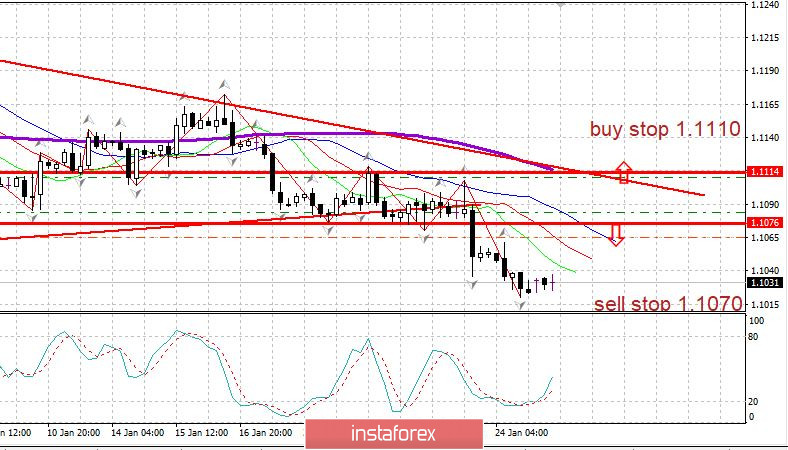
EURUSD:
Euro in a downward movement.
We are ready to sell from 1.1065.
In case of a turn-up, we are ready to buy from 1.1110.
The main event of the week is the Fed on Wednesday, January 29.
About the Fed:
The Fed, the world's main Central Bank has a "double mandate." This means that the Fed is obliged to perform two tasks as follows: 1) To ensure financial stability - that is, the lowest possible inflation. 2) Promoting the highest possible employment of the population — that is, the support in economic growth (it is clear that employment will not grow without economic growth).
This is a big difference from the European model of the Central Bank. In the classics, the Central bank in the European model is responsible for financial stability. This was way before the post-crisis of 2008-2009.
However, everything was changed by the previous head of the ECB, Mario Draghi. Everything changed when the EU faced the eurozone debt crisis, after the 2008-2009 crisis. Then the ECB was forced to use non-standard methods of saving the banking system and the sovereign debt system of the EU pumping huge amounts of liquidity into the markets. Thus, the ECB repeated the actions of the Fed despite the difference in the responsibilities of the Central Bank.
About the role of the Central Bank:
The financial sector in developed economies is one of the largest in terms of capitalization and importance. In developed countries, the financial sector is no less important than industry, energy, and the defense sector.
The Central Bank is a structure with a huge impact on the economy. The resources available to the Central Bank are comparable, and sometimes even more than the resources of the government (the country's budget). But at the same time compare the control of society over the government (parliament. Elections) and practically very weak control over the actions of the Central Bank.
By introducing taxes and spending the budget, the government is obliged to report on actions to the parliament and carry out its decisions through parliament. A small board of directors from the Central Bank allocates huge resources by a simple vote of the board of governors. Moreover, the Central Bank has independence in significant immunity.
However, the Central Bank is not completely independent, as the head of the Fed is approved by Congress. This means that in principle, the Fed is obliged to ensure public interest, although it has great freedom of action.
The role of the Central Bank for the market:
Changing the Central Bank rate has a significant role in the profitability of various businesses and various assets. For instance, the current very low levels of EUR/USD (compared with the average for 5-10 years) are undoubtedly associated with the aggressively soft monetary policy of the ECB. Low rates drop the euro that makes European products more competitive in the markets which support the eurozone economy.
The Fed has a different situation. The US economy is in a stable state thus, the Fed does not plan to further reduce the rate unless the situation worsens.
What do we expect from the Fed? I think that rates will remain unchanged on January 29.





















